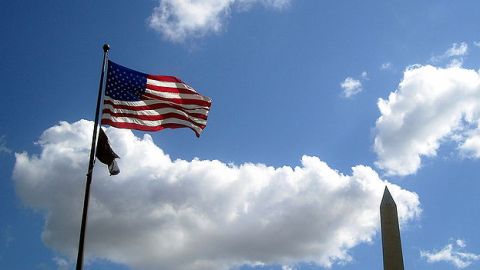Trouble in the City on a Hill

Before arriving in New England in 1630, John Winthrop famously told his shipmates that their colony would be like “a city upon hill.” Evoking a passage from the Sermon on the Mount, Winthrop told them that they must be an example for all to see. The world would be watching to see how the American social experiment would turn out. Whether it succeeded or failed, it would serve as a example for those who would follow.
This image of a city on a hill became a lasting metaphor for America itself. John F. Kennedy recalled Winthrop’s phrase in 1961, telling Americans that they would be judged by according to how they could answer these questions:
First, were we truly men of courage—with the courage to stand up to one’s enemies—and the courage to stand up, when necessary, to one’s associates—the courage to resist public pressure, as well as private greed?
Secondly, were we truly men of judgment—with perceptive judgment of the future as well as the past—of our own mistakes as well as the mistakes of others—with enough wisdom to know that we did not know, and enough candor to admit it?
Third, were we truly men of integrity—men who never ran out on either the principles in which they believed or the people who believed in them—men who believed in us—men whom neither financial gain nor political ambition could ever divert from the fulfillment of our sacred trust?
Finally, were we truly men of dedication—with an honor mortgaged to no single individual or group, and compromised by no private obligation or aim, but devoted solely to serving the public good and the national interest.
We owed it to the world, Kennedy said, for “to whom much is given, much is required.”
Although the tradition of American exceptionalism—the idea that America has a special role to play in history—has always been problematic, it is true that our wealth and position has made the United States a world leader. But the world—and our place in it—is changing dramatically. And to a certain extent we have squandered our credibility with short-sighted, unilateral policies.
America today is at crossroads. The threat of a major terrorist attack is very real, but may be the least of our worries. We are on the verge of a global environmental crisis. Our system of industrial agriculture may be unsustainable, while the world’s fisheries are in danger of collapse. We are fighting two costly wars, neither of which show much sign of coming to an end. Health care costs are growing out of control. The economic downturn and years of deficit spending mean that our national debt is now the highest it has been as a percentage of our national product since WWII. And at the same time, we face important fights over abortion, same-sex marriage, and civil liberties.
But while our global influence has begun to wane, all our eyes are still upon us—and it is probably largely for restoring this idea of America as a city on a hill that President Obama was awarded the Nobel Prize. Now more than ever we would do well to heed Kennedy’s words. How we handle our present crisis will go a long way to determining the course the world will take in the coming years. That’s the subject of this blog—welcome to Politeia.





